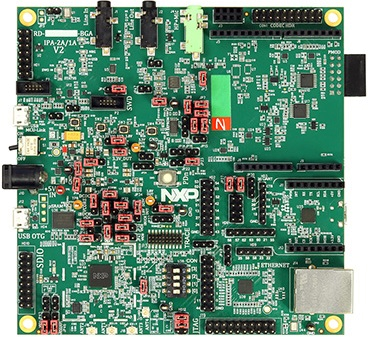RD-RW612-BGA

-
Core
Cortex-M33
-
Device
RW612ETA2I -
CMSIS Pack
RD-RW612-BGA_BSP
-
dev_phdc_weighscale_lite_bm
µVision AC6The USB PHDC WeighScale application is a simple demonstration program based on the MCUXpresso SDK.It is enumerated as a weight scale device and the HealthLink software is used to interact with thisdevice to simulate...See more details in readme document.
Download Pack -
dev_printer_virtual_plain_text_bm
µVision AC6The USB virtual printer application is a simple application to demonstrate a virtual printer functionality.Because there is no printer language parsing, the received raw data is output directly in the debug...See more details in readme document.
Download Pack -
dev_printer_virtual_plain_text_bm
Keil Studio AC6, GCC, IARThe USB virtual printer application is a simple application to demonstrate a virtual printer functionality.Because there is no printer language parsing, the received raw data is output directly in the debug...See more details in readme document.
Download Pack -
dev_printer_virtual_plain_text_freertos
µVision AC6The USB virtual printer application is a simple application to demonstrate a virtual printer functionality.Because there is no printer language parsing, the received raw data is output directly in the debug...See more details in readme document.
Download Pack -
dev_printer_virtual_plain_text_freertos
Keil Studio AC6, GCC, IARThe USB virtual printer application is a simple application to demonstrate a virtual printer functionality.Because there is no printer language parsing, the received raw data is output directly in the debug...See more details in readme document.
Download Pack -
dev_printer_virtual_plain_text_lite_bm
µVision AC6The USB virtual printer application is a simple application to demonstrate a virtual printer functionality.Because there is no printer language parsing, the received raw data is output directly in the debug...See more details in readme document.
Download Pack -
dev_printer_virtual_plain_text_lite_bm
Keil Studio AC6, GCC, IARThe USB virtual printer application is a simple application to demonstrate a virtual printer functionality.Because there is no printer language parsing, the received raw data is output directly in the debug...See more details in readme document.
Download Pack -
dev_suspend_resume_hid_mouse_bm
µVision AC6the application is enumerated as a mouse. When host releases the USB Bus, the device will enter into low power mode. The device can be waked up when resume signal is detected on the bus. Or the device can remote...See more details in readme document.
Download Pack -
dev_suspend_resume_hid_mouse_bm
Keil Studio AC6, GCC, IARthe application is enumerated as a mouse. When host releases the USB Bus, the device will enter into low power mode. The device can be waked up when resume signal is detected on the bus. Or the device can remote...See more details in readme document.
Download Pack -
dev_suspend_resume_hid_mouse_freertos
µVision AC6the application is enumerated as a mouse. When host releases the USB Bus, the device will enter into low power mode. The device can be waked up when resume signal is detected on the bus. Or the device can remote...See more details in readme document.
Download Pack
